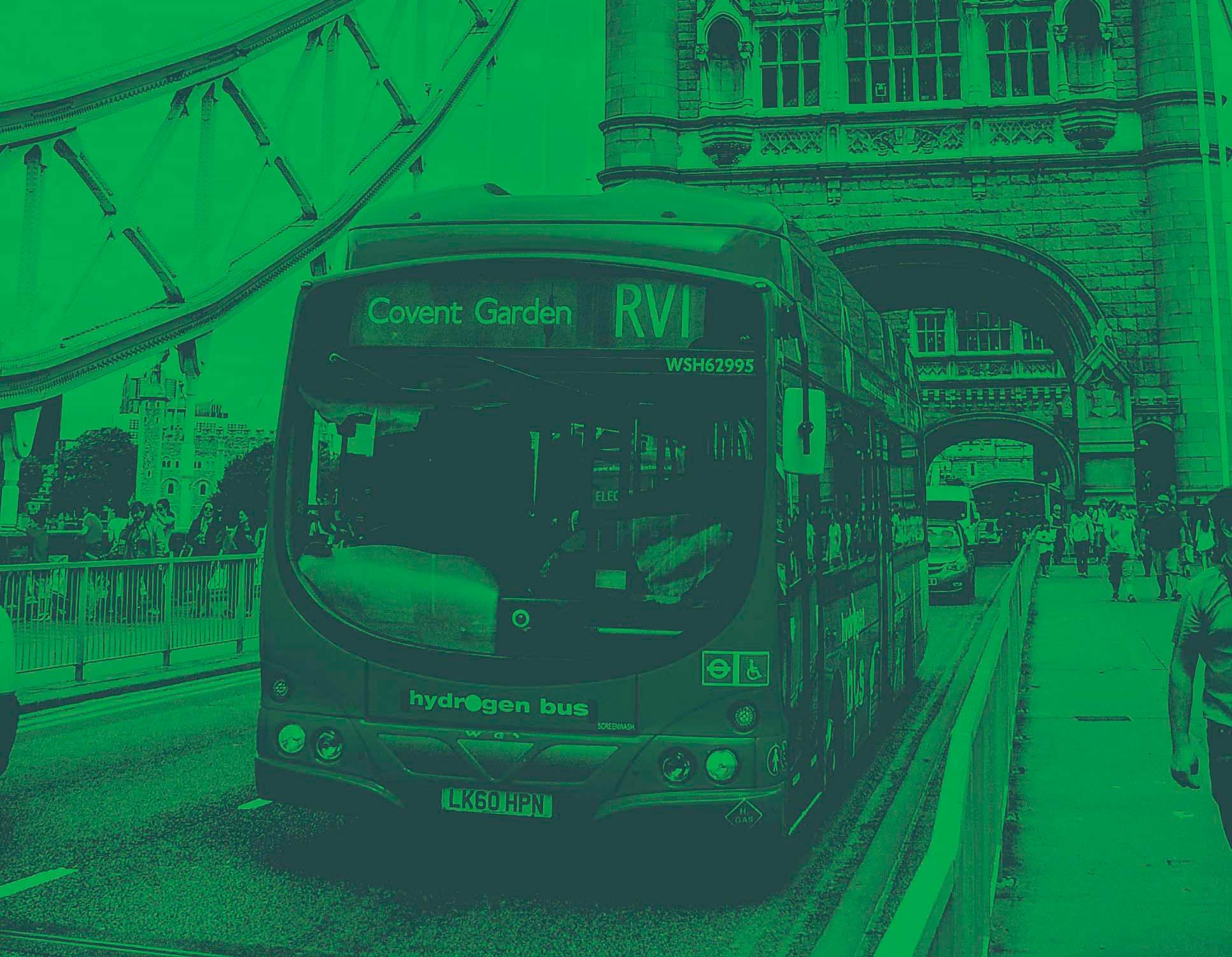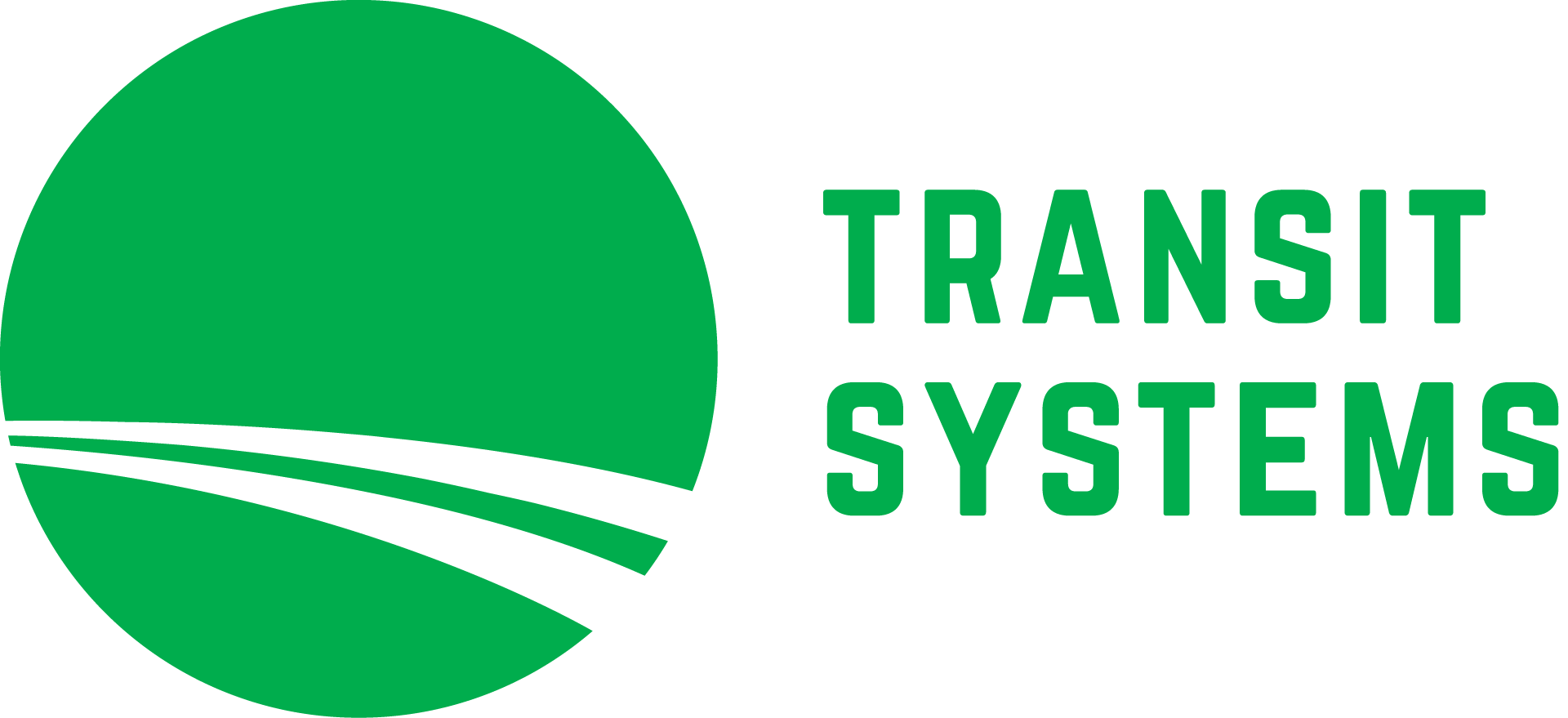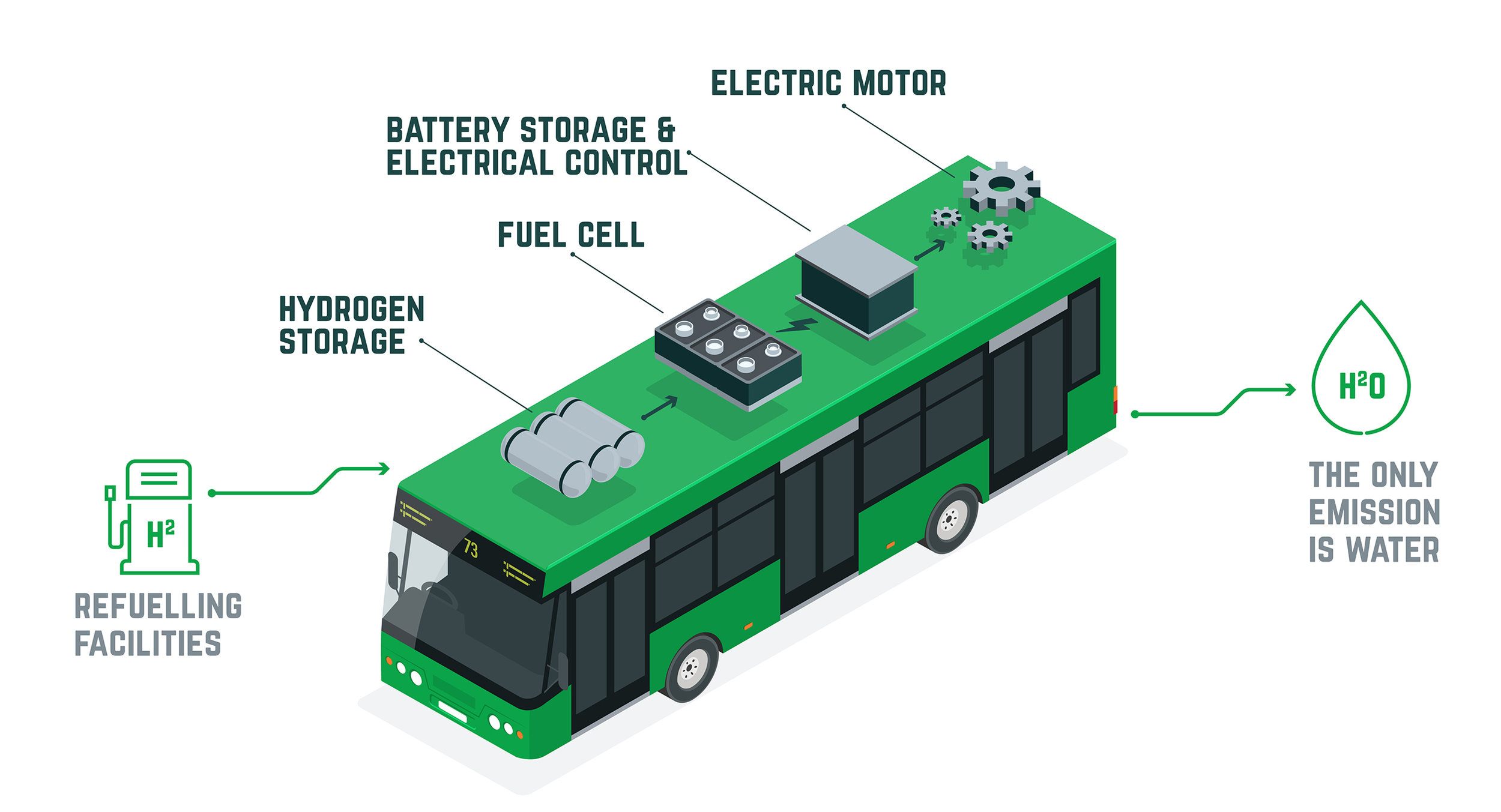
Transit Systems proudly sets the benchmark for exploring and trialling intelligent transport solutions designed to improve the sustainability and liveability of our communities. We successfully operated a hydrogen fuel cell trial in London for over seven years and have continued leveraging that experience and knowledge to pave the way for hydrogen capability in Australia.
Adelaide
In August 2023, Transit Systems introduced two cutting-edge hydrogen fuel cell buses into the Adelaide Metro network. Anticipating over 80,000 customer journeys within the first 12 months, these buses signify a significant leap toward sustainable and eco-friendly public transport.
At the forefront of this green initiative is Hydrogen Park South Australia, a pioneering collaboration between the South Australian Government and the Australian Gas Infrastructure Group. This partnership has birthed Australia's largest electrolyser, supplying green hydrogen to power the local gas network and the Transit Systems hydrogen buses.
The Foton Mobility Hydrogen Fuel Cell Buses (FTH12s) are stationed at Torrens Transit's Morphettville depot, heralding a new era in clean, efficient transportation. Transit Systems estimates an impressive reduction of approximately 90 tonnes of CO2 emissions annually, underlining our commitment to a greener, more sustainable future.
Melbourne
In November 2023, two additional hydrogen buses were introduced in Victoria, commissioned by the Department of Transport and Planning. Manufactured locally in Australia by the Aluminium Revolutionary Chassis Company (ARCC) in Western Sydney, these buses are a testament to our dedication to homegrown manufacturing.
Emitting only water vapour, these buses represent a stride toward a cleaner, more sustainable future for Australian public transport. The reduction of approximately 90 tonnes of CO2 emissions annually demonstrates the tangible impact of Transit Systems' commitment to eco-friendly mass transit.
How do Hydrogen buses work?
Hydrogen buses use fuel cells that work to combine hydrogen with oxygen. The resulting electricity is then used to power an electric motor and is also stored in batteries onboard.
london case study
ENGLAND'S LARGEST FLEET OF HYDROGEN BUSES
Transit Systems operated 10 hydrogen fuel cell buses (HFCB) in partnership with Transport for London from 2013 to early 2020 as part of a trial. This successful trial was the second longest hydrogen fuel cell bus trial in the world. The business is now taking the learnings from London to deploy HFCB’s in Australia.
Project Overview
Operation of 10 hydrogen fuel cell buses
Busy London route
17 hours per day, 7 days per week
Operating as a normal bus service
Operation and Maintenance undertaken by Tower Transit
Over 70 drivers trained
Fuelling infrastructure located at Tower Transit’s Lea Interchange Bus Depot
expert STAFF
Two full time hydrogen fuel cell technicians
Supporting technicians
Depot awareness by all engineering staff
All maintenance undertaken in depot
Ballard provide remote support
Specialist training undertaken including:
Ballard fuel cell
Luxfer Dynetek hydrogen system
Hybrid / high voltage systems
Maintenance facilities
Bespoke workshop
Two bays
One with fall arrest and hoist
A number of safety features including:
Hydrogen alarm
20% LEL alarm
40% LEL alarm
Venting
Power shutdown
Earth points
Interlock alarm
Attachment of PRD vent pipes
Personal hydrogen alarms
Spark proof tools
FUELLING facilities
The hydrogen buses are refuelled using a system that delivers gaseous hydrogen in a comparable time to the refuelling of diesel bus using the same refuelling process and procedures.
Air Products designed and maintained
Cascade fuelling system
Delivered gaseous hydrogen – tube trailer
Same staff refuel both hydrogen and diesel buses
Fuelling takes place over night ~10 minutes per bus
Process is similar to diesel buses
hydrogen industry leaders
3Emotion
Our London hydrogen bus operation is part of the Environmentally Friendly, Efficient, Electric Motion (3Emotion) project which aims to bridge the gap between current fuel cell bus demonstration projects and larger scale deployment in Europe.
Through the exchange of information about the daily operations, transport authorities will be informed about;
the movement towards cost effective integration of FC Buses in local bus fleets;
the enhancement of the technical availability of the buses;
the common technical and safety specifications for Refueling Infrastructure are;
the toolkit for the identification of a proper mix of incentives to support the market demand side; and
the evolution of fuel cell buses (from CHIC to 3Emotion)
AUSTRALIAN Hydrogen COUNCIL
Transit Systems is pleased to become a member of Australian Hydrogen Council (AHC). Australian Hydrogen Council’s vision is a hydrogen society built upon clean and renewable energy technology, including hydrogen powered transport. We are pleased to join a collection of vehicle manufacturers, oil and gas companies, infrastructure providers, research organisations, financial institutions and governments with a mission to make this hydrogen vision a reality.










